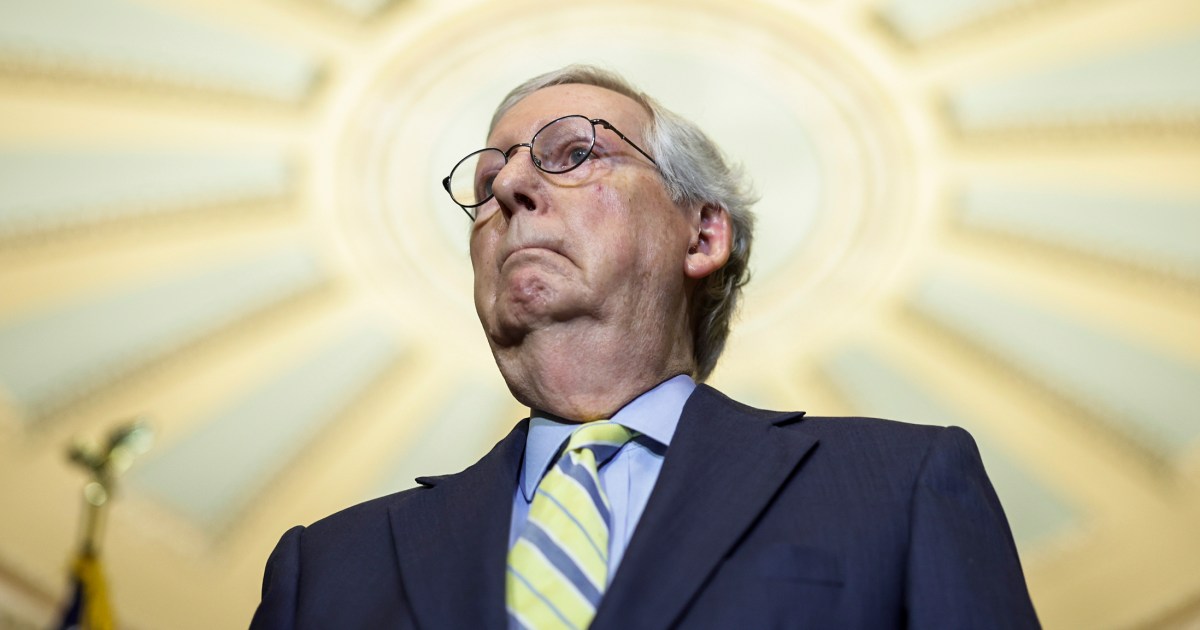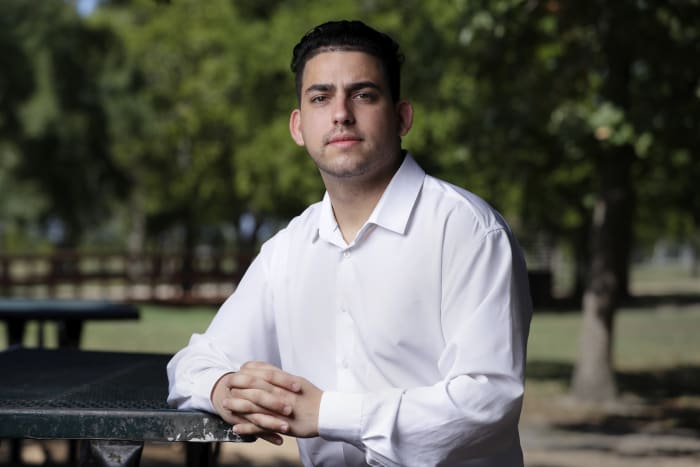
www.nbcnews.com
McConnell wants to win the suburbs by defusing cultural hot buttons. Trump and his own party have other ideas.
When Senate Minority Leader Mitch McConnell voted for the most significant gun violence prevention bill in nearly three decades, he offered a candid
Politics
WASHINGTON — When Senate Minority Leader Mitch McConnell voted for the most significant gun violence prevention bill in nearly three decades, he offered a candid explanation for his turnaround after decades of opposing firearm restrictions.
“It’s no secret that we’ve lost ground in suburban areas. We pretty much own rural and small-town America. And I think this is a sensible solution to the problem before us, which is school safety and mental health,” McConnell told reporters. “And yes, I hope it will be viewed favorably by voters in the suburbs that we need to regain in order to hopefully be a majority next year.”
The Kentucky Republican’s goal is to downplay the contentious issues on which suburban voters may be more sympathetic to Democrats — including gun restrictions, abortion rights and former President Donald Trump’s lies that the 2020 election was stolen — to soften the GOP's image with this group of voters ahead of the midterm elections.
A Republican leadership aide familiar with McConnell's thinking said he wants to make the 2022 midterms a referendum on President Joe Biden, hoping that disenchantment over inflation and gas prices will power the GOP back into the majority. “Not about Trump. Not about guns. Not about abortion. But about the things that are really keeping people up at night," the source said. That means "taking your foot off the gas occasionally" from opposition if a deal is popular, without sacrificing his principles, the aide said.
McConnell’s theory is based on a political realignment: Since 2012, culturally conservative and rural areas that used to be divided between the parties have swung sharply toward Republicans, while the more moderate and well-educated suburbs that once voted GOP have trended toward Democrats. With big cities still deeply Democratic, suburbanites appear to be the new swing voters, and many of them fled the GOP after the rise of Trump.
But McConnell has a problem: He’s outnumbered in his own party as those cultural issues remain a major driving force for Republicans, who remain predominantly pro-Trump. And the bipartisan agreements he has endorsed — from the gun law to an infrastructure package to an emerging deal to prevent future election coups — are unlikely to play well in GOP primaries or with conservative voters.
John Fredericks, chair of Trump’s 2016 and 2020 campaigns in Virginia, as well as a host on the right-wing Real America’s Voice platform, called McConnell a “RINO uni-party loser” for his spate of bipartisan deals, which he said were the result of “fears” over Trump’s return to power.
Trump himself has held rallies and promoted far-right candidates, while assailing the Kentuckian. “Mitch McConnell and his RINO [Republicans in name only] friends would rather see a Democrat like Biden be president than a Republican like me,” he claimed recently. Earlier, he said: “As far as Mitch McConnell, I am not a fan and there’s been no harsher critic than me. He has been absolutely terrible, and very bad for the GOP.”
'You know who lives in the suburbs? Millennials'
McConnell has another problem: The suburbs are more liberal and diverse than they were a decade or two ago, undergoing a generational shift and increasingly populated by millennials, who overall identify as more liberal than their Generation X elders or baby boomer parents.
“I’m not sure how effective [McConnell’s] strategy will be in the current moment,” said John Della Volpe, the polling director at the Harvard Kennedy School Institute of Politics. “You know who lives in the suburbs? Millennials and younger people. Millennials with these values are moving out and changing the politics of suburbs.”
Della Volpe said the “snowball effect” of Donald Trump back in the news, Jan. 6 revelations and right-wing Supreme Court decisions like the elimination of Roe v. Wade protections and expansion of gun rights are keeping cultural issues front and center in the 2022 midterms.
While 15 Senate Republicans voted for the modest gun bill written by Sens. Chris Murphy, D-Conn., and John Cornyn, a R-Texas, 33 Republicans voted against it.
























































